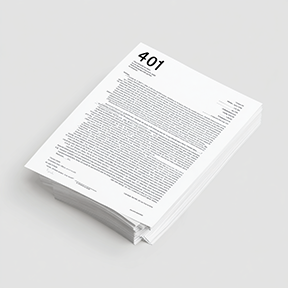Inflation Report 2025: How Consumers Are Coping With Higher Living Costs

2025 has been a turbulent year, with inflation continuing to affect people’s daily lives and shifting the global political and economic landscape. The newly released Inflation Report takes a closer look at how ordinary people are coping—whether that means finding ways to save, holding onto their homes, or managing grocery bills that seem to creep up every month.
Key Insights at a Glance
- Renting is most common in Sweden (47%), with the US, UK, and Australia/New Zealand close behind at around 35%. On the other hand, Singapore stands out for home ownership, with nearly half (47%) of people owning their homes outright—a trend that’s also seen in Japan. These differences show just how much housing security can depend on where you live.
- Japanese workers report feeling the least secure in their jobs—just 9% say they feel “very secure.” By comparison, 35% of workers in the UK and Australia/New Zealand feel that confident. Still, most people around the world say they feel at least “somewhat secure” about their work, but the gap between countries is striking.
- People in Singapore seem to be coping best—63% say they’re able to put something away from each paycheck. Sweden and the UK aren’t far behind at 54%. In the US, about half (48%) can save, but just as many are living paycheck to paycheck. Things are even tougher in Japan, highlighting how financial stability can look very different from one country to the next.
Housing: Costs and Changes
For most people, housing is still their biggest expense. Even with economic pressures mounting, nearly half of those surveyed say they have no plans to move anytime soon. When people do consider moving, it’s usually because of rising costs—except in Japan, where work and family reasons are more common.
Groceries: Costs Rising, Choices Changing
Rising grocery prices are the most universal pain point:
- More than half of people in Australia/New Zealand (52%) and nearly half in the UK (47%) say their grocery bills have jumped significantly this year. In the US, 38% report the same, showing that the pain of higher grocery prices is being felt everywhere, but not always equally.
- To stretch their budgets, many shoppers are turning to basics—think pasta and canned goods. In the US, more than half have started relying on frozen meals just to make ends meet.
- People are also cutting back wherever they can—eating out less, skipping trips, canceling subscriptions, and tightening their belts when it comes to non-essentials.
Considering these adjustments in spending, it is essential to determine what truly matters most to consumers now.
When asked about their spending priorities going forward, the top two concerns globally are:
- When asked what shapes their spending decisions, 33% of Americans and 42% of people in Australia/New Zealand say it’s their own financial situation that comes first. It’s clear that, depending on where you live, what matters most to you financially can look quite different.
- For others, it’s the cost of goods and services that matters most—41% in Singapore, 38% in Sweden, and 40% in the UK say this is their top priority. These numbers show how people everywhere are weighing price when making choices.
Inflation and overall economic uncertainty are now central to most household decisions, directly impacting what people buy, how they save, and their housing choices.
In short, while inflation continues to squeeze household budgets, people are finding creative ways to adapt—saving where they can and making tough choices about what to cut. Rising grocery prices have become a shared struggle around the world, shaping not just what we buy, but how we live day to day.
Disclosure
This post is for informational purposes only and does not constitute investment advice, an offer, solicitation, or recommendation to buy or sell any financial instruments or securities. The information presented is based on data collected and published in the “Inflation Report: Cost of Living 2025,” produced by Cint. While efforts have been made to ensure the accuracy and reliability of the information provided, no representation or warranty is made as to its completeness or timeliness. Readers should conduct their own research or consult with a qualified financial advisor before making any investment or financial decisions.
All trademarks and registered trademarks mentioned are the property of their respective owners. The views and opinions expressed in this summary are those of the author and do not necessarily reflect the official policy or position of Cint or its affiliates.
Source
- Cint official website: cint.com
Note: The attached report is proprietary and was not directly retrieved from a public URL. Please refer to the official Cint website for additional information and future publications.












